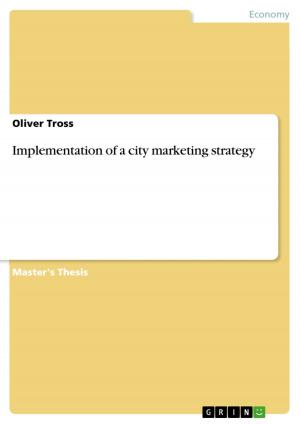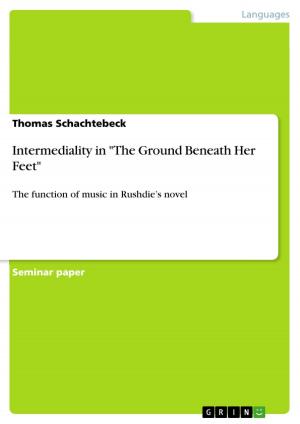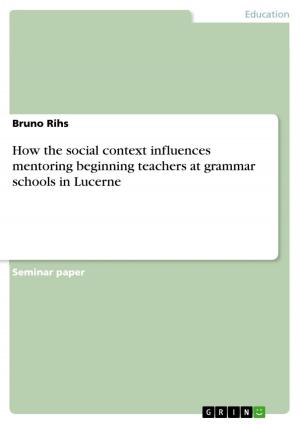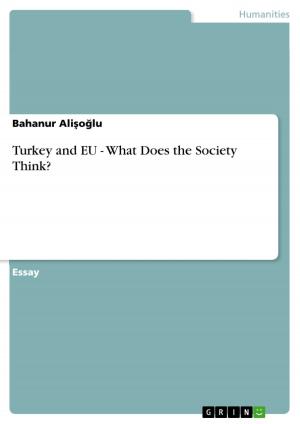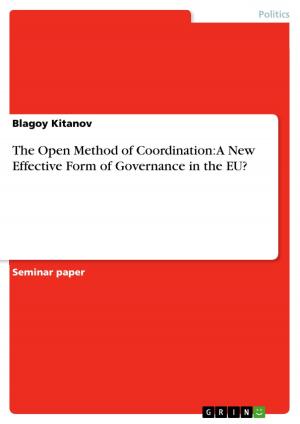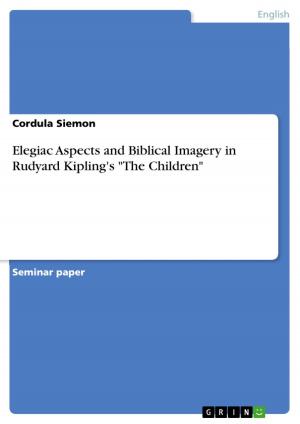| Author: | Aleksandra Pendarovska | ISBN: | 9783638298520 |
| Publisher: | GRIN Publishing | Publication: | August 6, 2004 |
| Imprint: | GRIN Publishing | Language: | English |
| Author: | Aleksandra Pendarovska |
| ISBN: | 9783638298520 |
| Publisher: | GRIN Publishing |
| Publication: | August 6, 2004 |
| Imprint: | GRIN Publishing |
| Language: | English |
Seminar paper from the year 2004 in the subject English Language and Literature Studies - Linguistics, grade: 2+ (B), University of Cologne (English Seminar), language: English, abstract: Language, in general, has always been an intricate matter for research. In the course of development of the linguistics as a field of studies particularly dedicated to the task of exploring the language faculty and its features a lot of breakthrough discoveries have been made. With respect to the particular point of research, there are several subcategories of linguistics that are the direct result of the interactive research on a particular phenomenon. The cognitive linguistics is, doubtlessly, one of the few such linguistic branches, that is composed of the research fields of sciences such as: psychology, anthropology, philosophy and computer science. However, cognitive linguistics does not focus on particular features of language or particular parts of the grammar, but attempts to discover its interplay with perception of the world, that is, the reality that surrounds the human beings. In its characterisation of the language as part of the cognitive system and not an independent feature, the cognitive linguistics is in opposition to the generative linguistics and the Chomskyan postulation that language faculty is inborn. Moreover, Chomsky claims that language is 'modular', that is, it exists individually from the other cognitive faculties. The main aim of the cognitive linguistics is to discover the laws of structure of natural language categorisation as well as the intricate connection between language and thought. Terry Regier defines its function in the following manner: 'In the domain of semantics in particular, cognitive linguistics seeks to ground meaning not directly in the world, but in mental and perceptual representations of the world'. (1996: 27) As the methodology and historical development of this field of studies are quite extensive, this paper will rather focus on the analysis of the main division of classical, also known as Aristotelian and modern theory. In the analysis of these two juxtaposed theories the pioneer work of the linguist William Labov and the psychologist Elisabeth Rosch would be taken into consideration. An emphasis would be put on Eleanor Rosch´s findings with respect to the extent of her contribution to the new ways of understanding categorisation of entities and clarification of certain aspects. Furthermore, some critical approaches of her findings would be regarded.
Seminar paper from the year 2004 in the subject English Language and Literature Studies - Linguistics, grade: 2+ (B), University of Cologne (English Seminar), language: English, abstract: Language, in general, has always been an intricate matter for research. In the course of development of the linguistics as a field of studies particularly dedicated to the task of exploring the language faculty and its features a lot of breakthrough discoveries have been made. With respect to the particular point of research, there are several subcategories of linguistics that are the direct result of the interactive research on a particular phenomenon. The cognitive linguistics is, doubtlessly, one of the few such linguistic branches, that is composed of the research fields of sciences such as: psychology, anthropology, philosophy and computer science. However, cognitive linguistics does not focus on particular features of language or particular parts of the grammar, but attempts to discover its interplay with perception of the world, that is, the reality that surrounds the human beings. In its characterisation of the language as part of the cognitive system and not an independent feature, the cognitive linguistics is in opposition to the generative linguistics and the Chomskyan postulation that language faculty is inborn. Moreover, Chomsky claims that language is 'modular', that is, it exists individually from the other cognitive faculties. The main aim of the cognitive linguistics is to discover the laws of structure of natural language categorisation as well as the intricate connection between language and thought. Terry Regier defines its function in the following manner: 'In the domain of semantics in particular, cognitive linguistics seeks to ground meaning not directly in the world, but in mental and perceptual representations of the world'. (1996: 27) As the methodology and historical development of this field of studies are quite extensive, this paper will rather focus on the analysis of the main division of classical, also known as Aristotelian and modern theory. In the analysis of these two juxtaposed theories the pioneer work of the linguist William Labov and the psychologist Elisabeth Rosch would be taken into consideration. An emphasis would be put on Eleanor Rosch´s findings with respect to the extent of her contribution to the new ways of understanding categorisation of entities and clarification of certain aspects. Furthermore, some critical approaches of her findings would be regarded.


